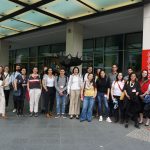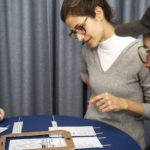By Daniel Herrera, POLIS Network, Discover the INDIMO project and see how we have positively impacted the lives of vulnerable-to-exclusion groups of…
Berlin
Urban mobility can be challenging, even in areas with good public transport coverage. In recent years many new mobility services have been introduced, primarily in urban areas, promising smarter mobility solutions. Indeed, many of these new mobility services are technology-based, thus it is important to acknowledge to what extent technology can represent a barrier for certain user groups. Door2door will contribute to the collection of specific requirements in order to increase access and provide individual mobility for all.
In the framework of the INDIMO project, door2door will carry out the Berlin pilot, focusing on user testing, to analyse the whole user experience of each user group. Jointly with all involved partners, door2door will gather data and experiences regarding not only the accessibility of the digital service itself, such as multimodal journey route planning, booking and paying, but also the actual user experience of a shared ride.
Pilot objectives
The Berlin pilot identified user requirements of selected user groups, which were translated into guidelines, to develop universally accessible technology, products and services. The aim was to achieve higher product quality standards, but also to increase the overall knowledge of employees and involved partners, to develop a wider understanding and sensitivity about accessibility issues. The focus of the pilot was centred around the core competency of door2door, multimodal journey planners and ride-pooling services. Throughout the pilot field test, researchers, product managers, software developers and operational staff were involved, to ensure that the appropriate framework and methodology could be deployed.
The following pilot stakeholders were involved, together with the INDIMO target groups:
- Fahrgastverband PRO BAHN e.V. – https://www.pro-bahn.de/
welcome.htm - VORN – https://www.vornconsulting.
com - Technische Hochschule Ingolstadt (THI) – https://www.thi.de/












